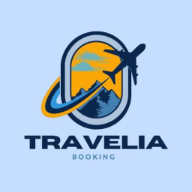When traveling solo on a budget, money management becomes both your foundation and your lifeline.
Good financial habits before and during your trip can be the difference between extending your adventure — or cutting it short.
This chapter covers practical strategies to maximize your savings at home and on the road without sacrificing the richness of your travel experience.
Saving for Your Solo Adventure
Building your travel fund is step one — and it doesn’t have to be overwhelming if approached systematically.
Smart Saving Strategies Before Departure:
- Set a Clear Savings Goal: Know exactly how much you need, including emergency funds. Break it down into monthly or weekly targets.
- Automate Your Savings: Set up an automatic transfer to a dedicated “Travel Fund” account as soon as your paycheck arrives.
- Cut Back (Temporarily):
- Limit dining out and entertainment expenses.
- Cancel unused subscriptions (streaming services, gym memberships).
- Swap expensive habits (like daily lattes) for cheaper alternatives.
- Sell Unneeded Items: Turn clutter into cash. Sell old electronics, clothes, or furniture through local apps or garage sales.
- Freelance or Side Hustle: Use skills like writing, tutoring, graphic design, or pet sitting to build extra income streams.
Example:
Freelancing just five hours a week at $20/hour can add over $400 a month to your travel fund!
Budgeting on the Road: Spend Smart, Travel Longer
Once you’re traveling, the key is balancing enjoyment with mindful spending.
Daily Budgeting Tips:
- Use Cash for Daily Expenses: Withdraw a set amount each week or day. It’s easier to track what you’re spending.
- Set Priorities: Allow yourself to splurge occasionally (like a special tour or unique meal) while keeping everyday expenses low.
- Avoid ATM Fees: Use banks that reimburse ATM fees globally, like Charles Schwab or Revolut.
- Keep a Simple Log: Apps like Trail Wallet, TravelSpend, or even a small notebook help you track expenses on the go.
Saving on Accommodation
Accommodation is often your biggest expense. Luckily, solo travelers have plenty of options beyond hotels.
Affordable Accommodation Strategies:
- Hostels: Many offer private rooms at lower prices than hotels, plus free activities and communal kitchens.
- Guesthouses and B&Bs: Often cheaper than hotels with a more personal touch.
- House-Sitting: Look after someone’s home and pets for free lodging (via platforms like TrustedHousesitters).
- Work Exchanges: Trade a few hours of work (reception, farming, cleaning) for free room and board (Workaway, WWOOF).
- Longer Stays: Renting a room for a week or month often brings deep discounts compared to nightly rates.
Pro Tip:
Booking directly with hostels or guesthouses (instead of third-party apps) can sometimes unlock discounts or freebies like breakfast or laundry.
Saving on Food and Drinks
Eating well doesn’t mean draining your wallet.
Smart Food Habits:
- Eat Like a Local: Street food and local markets are often authentic and cheap.
- Shop at Grocery Stores: Buy snacks, fruits, and ready-to-eat meals to avoid pricey restaurants.
- Cook Your Own Meals: If you have access to a kitchen, even making breakfast or simple dinners saves big money over time.
- Stay Hydrated Smartly: Carry a reusable water bottle and refill instead of buying bottled water everywhere.
- Limit Alcohol Costs: Drinking at bars adds up quickly. Buy a drink from a store or attend hostel-organized social hours for cheap options.
Example:
A $3 bowl of pho on the streets of Hanoi is not only delicious but saves you from a $25 restaurant meal.
Saving on Transportation
Getting from place to place can eat up your budget if you’re not strategic.
Cheap Transport Tips:
- Public Transportation: Buses, subways, and trains are far cheaper (and more local!) than taxis or rideshares.
- Walk or Rent a Bike: Save money and explore cities more intimately.
- Travel Overnight: Take overnight buses or trains to save on both accommodation and transport.
- Budget Airlines and Long-Distance Buses: For longer routes, research budget airlines (but always read the fine print on fees).
Pro Tip:
Apps like Rome2Rio show all possible transport options (buses, ferries, rideshares) between two points — often revealing cheaper alternatives.
Hacks for Discounted Activities and Attractions
You can still enjoy rich experiences without paying top dollar.
How to Save on Activities:
- City Tourist Cards: Many cities offer passes that bundle transportation and museum entry at a discount.
- Free Walking Tours: Great for getting oriented and learning local history. (Tip your guide at the end.)
- Student and Youth Discounts: Carry your ID if you’re eligible; many museums and transportation systems offer reduced rates.
- Happy Hours and Special Days: Museums often have free admission days or half-price evenings.
- Join Hostel Tours and Activities: Many hostels organize low-cost group trips or pub crawls.
Emergency Money Tips
Even the best-laid plans sometimes run into surprises.
- Always have at least $100–$200 hidden separately in your bag or money belt.
- Know how to quickly transfer or access funds internationally (PayPal, Wise, Western Union).
- Keep one backup credit or debit card stored safely away from your primary card.
Key Takeaways:
- Saving for your trip starts with small, consistent actions that add up over time.
- Budgeting on the road doesn’t mean saying “no” to fun — it means spending intentionally.
- Accommodations, food, transport, and activities all offer smart ways to stretch your money without sacrificing experience.
- A solid financial backup plan brings peace of mind, allowing you to enjoy your journey fully.
Every dollar saved is another adventure earned.
